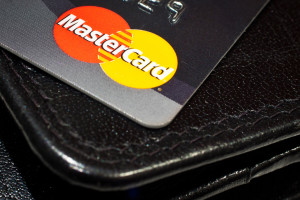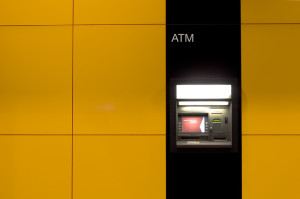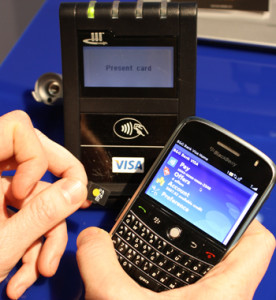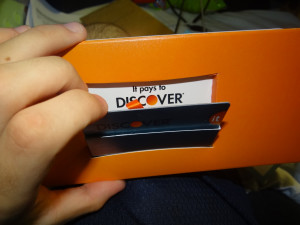December 12th, 2016 by Elma Jane
Wireless Freedom with Smart Terminal!
Point-of-sale with WiFi capabilities. Now customers can take advantage of total mobility within their location when accepting payments, and managing their business either in-store or remotely. The device is NFC enabled for contactless transactions, and also designed to be easily transported due to its rechargeable battery.

Perfect for Pay at the Table!
Intended to provide cardholders with the ability to pay from anywhere within a business, the Smart Terminal is the ideal solution for processing transactions (and tips) tableside. Other benefits for this service include:
- 8 hour battery life on a single charge.
- Customer screen displays for PIN, Signature, tips, and receipts (via paper/email/text).
- Cardholders have the ability to complete transactions quicker, increasing profitability.
- Enhances the customer service experience.

Available for Retail and Restaurant customers only.
Posted in Best Practices for Merchants Tagged with: cardholders, customers, nfc, payments, POS, terminal, transactions

June 16th, 2016 by Elma Jane
Merchants and cardholders have been challenged by the perceived additional time to complete the EMV transaction.
To address concern over EMV checkout time Visa and MasterCard create an alternate EMV payment process that will improve the speed of transaction:
Quick Chip from Visa is available free-of-charge to acquiring banks, payment networks, and other payment processors to offer to merchants. The enhancement requires only a simple software update to the merchant’s card terminal or point-of-sale system.
M/Chip Fast from MasterCard merchants can easily integrate this with their current systems to provide both speed and security for all chip cards. Designed for select environments where fast transaction times, in addition to security, are at a premium.
The new card network options do not require the financial institution to reissue cards, or the merchants to re-certify their point-of-sale terminals.
Alignment in the payments industry and the ability to process a secure transaction in a timely manner for the consumer experience is important.
Keeping current on the payment industry news like Quick Chip and M/Chip Fast or discussion about EMV developments is a smart move for merchants and cardholder as well.
Posted in Best Practices for Merchants, Credit card Processing, EMV EuroPay MasterCard Visa Tagged with: banks, card, card network, cardholders, chip cards, EMV, financial institution, merchants, payment, payment networks, payment processors, payments industry, point of sale, Security, terminal, transaction
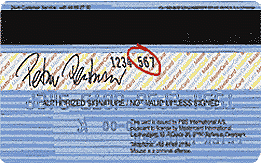
March 17th, 2016 by Elma Jane
A bank in Mexico is the first in the world to publicly experiment with this technology. With their mobile wallet application, cardholders are able to use dynamic CVC/CVV codes, which are generated every twenty minutes.
If somebody is using credit card information stolen from a data intrusion and the merchant accepting payment online asks for the CVV, it likely would have changed by that time, they would enter the wrong CVV and the transaction would be declined.
Cards with CVV code display that randomly changes will ensure that users making orders online are who they say they are. Many e-Commerce sites already ask shoppers for the CVV code during online transactions or over the phone.
The technology is an intuitive solution, but costly to issuers. Cards with displays that enable a dynamic CVV code are 10 times more expensive than chip cards.
As mobile banking, e-commerce, and m-commerce is growing, something had to change sooner or later in the online payment industry.
Posted in Best Practices for Merchants, Credit Card Security, e-commerce & m-commerce Tagged with: bank, cardholders, cards, credit card, data, e-commerce, m-commerce, merchant, mobile, online, payment, payment industry, transaction, wallet

December 18th, 2015 by Elma Jane
A leading provider of mobile point of sale and mobile payment technology, published today the EMV Migration Tracker.
Many merchants have deployed EMV capable terminals while cardholders have received cards with EMV chips, but not much data has been published about the real world use of EMV chip card technology in the U.S. Most published statistics rely on surveys or forecasts rather than real transactional data.
The EMV Migration Tracker shows new data and insights since the October 1 liability shift, including:
- Over 50% of all cards in use now have EMV chips on them. From October to November, the percent grew 5% as banks and card issuers accelerated their rollout of new chip cards.
- Over 83% of American Express cards have EMV chips, while Discover lags at 40%
- Over 63% of the cards used in Hawaii have EMV chips, but Mississippi sees just 11% penetration of chip cards.
While EMV chip card technology has been implemented in Europe years ago, the rollout of EMV in the U.S is just beginning. The rollout came earlier this year with the October 1 liability shift in card present transaction, meaning that merchants who have not upgraded their POS system can become liable for counterfeit card fraud losses that occur at their stores. This is an early step in an ongoing process that the Payments Security Task Force predicts will lead to 98 percent of U.S. credit and debit cards containing EMV chips by the end of 2017.
http://www.finextra.com/news/announcement.aspx?pressreleaseid=62506
Posted in Best Practices for Merchants Tagged with: American Express, banks, card issuers, card present, card technology, cardholders, chip cards, credit, data, debit, Discover, EMV, EMV chips, merchants, mobile payment, mobile point of sale, payment technology, point of sale, POS, provider

December 15th, 2015 by Elma Jane
Visa Inc. has launched the Visa Token Service in Asia Pacific, in association with United Overseas Bank (UOB). Store tokens on mobile devices, cloud-based mobile applications, and e-commerce merchants carry less risk of security hack. This security technology will replace sensitive account information to make payments without exposing bank details.
Tokenized cards are linked to customer’s wallet application or mobile and validated by VisaNet. Biometric authentication and device identification features are available through this service. Visa debit or credit cardholders with NFC-enabled Android smarthphones cardholders will be able to make contacless payments.
Posted in Best Practices for Merchants, e-commerce & m-commerce Tagged with: bank, biometric, cardholders, cards, contacless payments, credit, debit, e-commerce, e-commerce merchants, merchants, nfc, payments, token, Tokenized cards, visa
July 14th, 2014 by Elma Jane
French financial services company LCL has introduced a service that securely issues payment card PIN codes to customers via SMS texting. The programme has been introduced initially for cardholders who forget their confidential code when out shopping or withdrawing cash. In a second phase, the bank intends to extend PIN issuance to coincide with the mail-out of newly-created cards.
LCL is using Gemalto’s Netsize platform, which offers direct connections to more than 160 mobile operators globally for message delivery. LCL recognizes the mobile channel as a new opportunity to support their continued drive to optimize card activation rates and be the top-of-wallet choice for payment. Enabling cardholders to get their PIN code on their mobile phone prompts them to start using their banking card as soon as they receive it.
Posted in Best Practices for Merchants, Mobile Payments, Smartphone Tagged with: bank, card, cardholders, codes, customers, mobile, mobile channel, payment, PIN, Rates, sms, wallet
May 29th, 2014 by Elma Jane
New enhancements intended to provide its U.S. cardholders with greater protection from fraud and identity theft has been announced by MasterCard.
All MasterCard credit, debit, prepaid and small business cards issued in the U.S. will now carry Identity Theft Resolution assistance. MasterCard new program will provide help in canceling missing cards and alerting credit reporting agencies, as well as targeting searches to detect if stolen personal and confidential data appears online. The new Identity Theft coverage extension begins in July 2014.
MasterCard is also extending its zero liability policy in the U.S. to include all MasterCard PIN-based and ATM transactions. This is in addition to coverage already provided on signature debit and credit transactions. The Zero Liability coverage extension takes effect in October 2014.
Fraud prevention and detection is a 24/7 job at MasterCard. The changes in cardholder protection is a combined efforts to move the U.S. payments industry to EMV chip technology will help deliver safer shopping experiences to consumers. MasterCard noted that tanks and financial institutions issuing MasterCard-branded cards provide financial indemnity against fraud.
Posted in Credit card Processing, Credit Card Security, EMV EuroPay MasterCard Visa, Visa MasterCard American Express Tagged with: ATM transactions, business cards, cardholders, credit, credit reporting agencies, credit transactions, data, debit, EMV, EMV chip technology, financial institutions, fraud, Fraud prevention, identity theft, Identity Theft Resolution assistance, MasterCard, payments industry, PIN, prepaid, zero liability policy
May 19th, 2014 by Elma Jane
T-Mobile customers who use their carrier’s Mobile Money app and prepaid card will now have surcharge-free access to more than 43,000 Allpoint-branded ATMs across the United States, through an agreement with the Allpoint Network. The Mobile Money program unites a money management app, a T-Mobile Visa prepaid card and the Allpoint surcharge-free ATM network on a single mobile device to provide customers many of the features of a checking account. With Mobile Money, registered T-Mobile wireless customers pay nothing when they use their T-Mobile Visa Prepaid Card to withdraw cash at an in-network Allpoint ATM.
When T-Mobile began developing the Mobile Money program, a key goal was to use the smartphone to help consumers both manage their money and keep more of it in their pocket. The Allpoint Network helps accomplish that mission with 43,000 surcharge-free ATMs found in many of America’s most popular retailers, made even more convenient by a free, easy-to-use Allpoint ATM locator within the Mobile Money app.
Easy access to cash, preferably without the surcharge imposed by the ATM owner, is at the heart of the most successful general-purpose prepaid card programs. Having access to Allpoint, the T-Mobile Visa Prepaid Card is a core component of Mobile Money by T-Mobile. Eligible cardholders looking for the nearest surcharge-free Allpoint ATM can use the Allpoint Network ATM locator, available online and as a free app for their smartphones.
Posted in Financial Services, Mobile Payments, Smartphone Tagged with: Allpoint ATM, Allpoint Network, Allpoint surcharge-free ATM network, Allpoint-branded ATMs, ATM locator, cardholders, checking account, free app, mobile device, mobile money, Mobile Money app, Mobile Money program, money management app, prepaid card, smartphone, surcharge-free, T-Mobile, T-Mobile Visa prepaid card, T-Mobile wireless
April 15th, 2014 by Elma Jane
Amsterdam, Netherlands-based Cardis has been piloting its technology in Europe with Raiffeisen Bank in Austria and Sberbank in Russia. They are now focused on the U.S., as this is the fastest growing mobile payments market in the world, where there’s a huge opportunity. Integration of technology with a large U.S. processor and with a major U.S. retail brand, which will be launching a mobile site and mobile app using Cardis solution.
Cardis International is planning an April launch in the U.S. for its technology, which enables merchants to accept low-value contactless or mobile payments without incurring high processing charges. Cardis is able to bring down the processing cost of low-value payments, the company said, by aggregating multiple transactions into a single payment.
The problem
Contactless card and NFC-based mobile payments are typically for low amounts, and yet still use a card processing infrastructure that was designed 40 years ago when the average credit card transaction was $100.
Traditional card processing systems require each transaction to be individually processed through the payment system, including authorization, clearing and settlement. The resulting variable costs of processing each transaction are independent of the transaction amount and too high for low-value payments, particularly in low-margin industries such as quick-service restaurants. QSR restaurants often have a 3 percent profit margin, yet, for low-value contactless payments, the processing cost could be as high as 6-7 percent of the transaction value.
Mobile and contactless cards offer consumers a convenient form factor. But they don’t solve the problem that low-value card payments are very expensive for merchants.
As an ever-increasing percentage of transactions have become cashless, card processing fees have become a significant cost. Costs that are based on the number of transactions, rather than their value. With average per person expenditures of $5 or under, feels each swipe fee much more than a business where customers spend $50 or more. But not accepting credit/debit cards for low-value transactions isn’t an option as many of customers don’t carry cash anymore.
Aggregation
Cardis’ solution is to act as an aggregator of low-value payments, sending a single batched transaction through to a processor instead of multiple low-value transactions. As there is no per transaction processing of individual low-value purchases, the cost-per-transaction is significantly reduced.
Cardis provides its technology as a software plug-in to payment service providers for contact-based and contactless card payments, mobile wallet transactions and NFC payments.
There are two models. For card payments, it will aggregate multiple purchases by an individual cardholder at a single merchant on a post-paid basis up to a specific amount, for example $20. To guarantee payment to the merchant, since the aggregated transaction is processed at a later date, it will pre-authorize an amount, for example $15, the first time the customer makes a purchase at that merchant.
Alternatively, merchants can opt for Cardis’ prepaid system. This involves the consumer setting up a prepaid account hosted by Cardis’ sponsoring bank that is topped up via ACH (automated clearing house) transfers. Using the Cardis prepaid account on a smartphone provides the digital equivalent to cash.
With its post-paid solution, merchants will save 30-50 percent per transaction compared to conventional card processing fees, while its prepaid solution saves merchants 80 percent per transaction. With the post-paid solution, it will only aggregate a customer’s purchases at a single specific merchant. But, as the prepaid solution aggregates the customer’s purchases across multiple merchants, this enables to offer a much lower processing fee to the merchant.
Cardis provides an audit trail enabling consumers to track individual transactions that are aggregated using its technology. Consumers don’t lose any of their card protection rights and guarantees by agreeing to let a merchant aggregate their payments through Cardis. They can always charge back any disputed transactions.
Cardis sees opportunities for digital content providers such as online music stores and games providers to use its aggregation technology. It can integrate solution with existing digital wallets.
Raiffeisen
In 2012, Austria’s Raiffeisen Bank launched a pilot of Cardis technology for NFC-based Visa V Pay debit card payments in partnership with Visa Europe. Raiffeisen’s MobileCard mobile payment product uses a secure element stored on an NFC-enabled MicroSD card inserted in a mobile phone. Although Cardis supports secure elements stored on SIM cards as well as on MicroSD cards and on the cloud, Raiffeisen opted for MicroSD cards, as this is an easier solution to implement.
Raiffeisen cardholders participating in the pilot use MobileCard on average three times a week, with an average transaction value of ($5.70). Merchants accepting MobileCard are seeing 40 percent to 70 percent lower merchant processing fees for an average transaction value of ($5.43) to ($13.60).
Spindle
In October 2013, Spindle, a U.S. mobile commerce company, signed an agreement with Multi-max, a manufacturer of vending machines for mid-size and small offices throughout North America, Europe and Asia. Spindle will integrate its MeNetwork mobile commerce technology into Multi-max’s line of K-Cup vending machines for rollout across the U.S.
The MeNetwork solution will incorporate all card-based payment acceptance services, as well as mobile marketing services. Spindle’s partner Cardis will provide low-value payment processing services for purchases at K-Cup vending machines.
Posted in Credit card Processing, Credit Card Security, Digital Wallet Privacy, e-commerce & m-commerce, Electronic Payments, Gift & Loyalty Card Processing, Internet Payment Gateway, Mobile Payments, Mobile Point of Sale, Near Field Communication, Payment Card Industry PCI Security, Smartphone, smartSD Cards, Visa MasterCard American Express Tagged with: accept, ach, aggregated, aggregation, aggregator, authorization, automated clearing house, average transaction, batched, card payments, card processing infrastructure, card processing systems, card-based payment acceptance, cardholders, clearing, contactless, contactless payments, cost-per-transaction, credit card transaction, debit card payments, Digital wallets, high processing charges, low-value payments, merchant aggregate, Merchant's, microSD, mobile app, mobile commerce, mobile payment, Mobile Payments, mobile site, mobile wallet transactions, nfc-based, payment service providers, pre-authorize, prepaid, processed, Processing, processing cost, processing fees, processor, settlement, smartphone, transactions, transfers
February 17th, 2014 by Elma Jane
Discover’s Free FICO Service
Executives across all industries have begun forsaking consumer input when designing products. it’s not a customer’s job to know what they want.
Julie Loeger, senior vice president of brand and acquisition at Discover, has found success by bucking this recent trend. Launched just one year ago, Discover’s it Card – a credit card that comes with no late fees, no over limit fees and no APR penalties for late payments, was crafted precisely to meet the desires of increasingly demanding credit card users.
This November, Discover once again illustrated its ability to put consumer needs front and center with the announcement that it would begin providing cardholders with free FICO credit scores as part of their monthly credit card statements.
A lot of information, and what consumers wants to do is share that information to help them achieve their financial goals and personal goals.
The result was an overwhelming positive response that led Loeger and her team to put together a program that included FICO scores, while keeping the end-product simple and straightforward.
One year after the Discover it Card was introduced, and one month after the launch of its FICO service, a regrouped with Loeger for a conversation that revealed new insights into what consumers are looking for in the market and what Discover has learned about marketing successful card products.
Posted in Financial Services, Visa MasterCard American Express Tagged with: apr penalties, card products, cardholders, credit scores, credit-card, dicover, fico, financial services, late fees, late payments, over limit fees, statements






